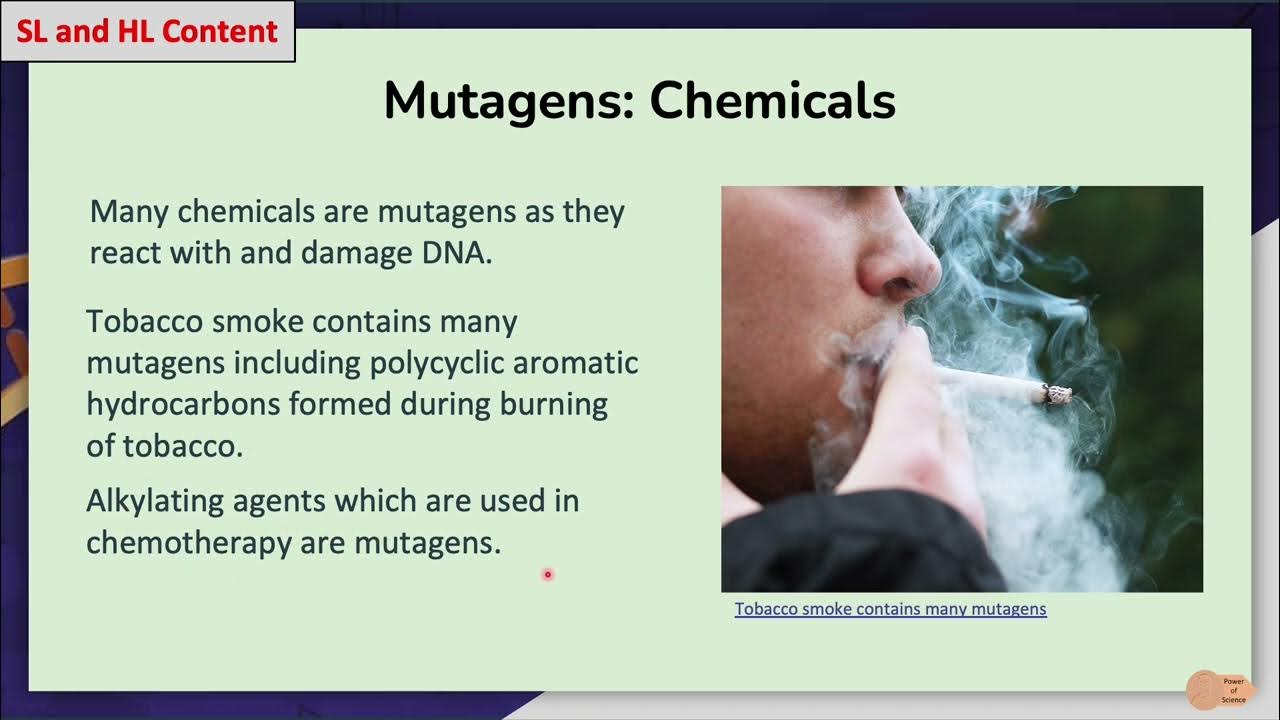Carcinogenesis: The transformation of normal cells to cancer cells
Summary
TLDRCarcinogenesis is a complex process where mutations in DNA alter the behavior of cells, causing them to grow uncontrollably. These mutations may be inherited or caused by external factors like radiation and chemicals. Tumor suppressor genes and growth-regulating genes play a crucial role in controlling cell division, but when damaged, they may fail to stop the growth of cells. Carcinogens can disrupt this balance, leading to uncontrolled cell proliferation. Overexpression of growth factors and genetic mutations contribute to the exponential growth of damaged cells, which is a hallmark of cancer development.
Takeaways
- 😀 Carcinogenesis involves complex organ systems, where tissues and cells play key roles in the development of cancer.
- 😀 Cells contain genes made of DNA sequences, which dictate their function and lifespan.
- 😀 Mutations in DNA can alter a cell's function, potentially leading to cancer. These mutations can be inherited or spontaneous.
- 😀 Carcinogens, such as radiation and chemicals, can cause DNA mutations that contribute to cancer development.
- 😀 Normal cells grow, multiply, and die in a controlled manner, with DNA replication occurring during cell division.
- 😀 The process of cell division, called mitosis, is controlled by various factors, ensuring orderly growth.
- 😀 Proto-oncogenes act like 'on switches' for cell growth, while tumor suppressor genes act like 'off switches' to stop cell division.
- 😀 Mutations in proto-oncogenes can lead to continuous cell growth, while damaged tumor suppressor genes fail to stop cell division.
- 😀 Hormones and other growth factors modulate cell proliferation, which is also influenced by external factors like chemicals.
- 😀 Overexpression of growth factors or damaged regulatory genes can lead to uncontrolled, exponential cell growth, a hallmark of cancer.
Q & A
What is carcinogenesis?
-Carcinogenesis is the process by which normal cells become cancerous due to changes in their DNA that result in uncontrolled growth and division.
How are cells organized in the body?
-Cells in the body are organized into tissues, which make up organs. These tissues are composed of specific types of cells that are arranged in an orderly fashion.
What role do genes play in cellular function?
-Genes, made up of DNA sequences, determine various cellular properties, including the function and lifespan of the cell. Mutations in these genes can alter how a cell functions.
What is a mutation, and how does it affect cells?
-A mutation is a change in the DNA sequence of a cell. This alteration can affect how the cell performs its functions, and in some cases, may lead to uncontrolled cell growth, contributing to cancer.
What are carcinogens and how do they contribute to cancer?
-Carcinogens are factors such as radiation or certain chemicals that can cause changes in the DNA, leading to mutations that can result in cancer.
What is the process of mitosis?
-Mitosis is the process by which a cell divides to form two new cells, each containing a complete set of DNA. This process is essential for growth and tissue repair.
How is cell division controlled?
-Cell division is controlled by various factors, including specific genes that either promote or inhibit the process. Proto-oncogenes act like switches to encourage cell division, while tumor suppressor genes signal the cell to stop dividing.
What happens when tumor suppressor genes are damaged?
-When tumor suppressor genes are damaged, they may fail to send the 'stop' signals, allowing cells to divide uncontrollably and potentially leading to cancer.
How do growth factors influence cell division?
-Growth factors, such as hormones, regulate cell proliferation. They can stimulate cells to divide, but when their regulation is disrupted—either by external chemicals or other factors—it can result in unchecked cell growth.
What is the relationship between overexpression of growth factors and cancer?
-Overexpression of growth factors can lead to excessive cell division, particularly if the cell's DNA or tumor suppressor genes are damaged. This uncontrolled growth can contribute to the formation of tumors.
Outlines

This section is available to paid users only. Please upgrade to access this part.
Upgrade NowMindmap

This section is available to paid users only. Please upgrade to access this part.
Upgrade NowKeywords

This section is available to paid users only. Please upgrade to access this part.
Upgrade NowHighlights

This section is available to paid users only. Please upgrade to access this part.
Upgrade NowTranscripts

This section is available to paid users only. Please upgrade to access this part.
Upgrade NowBrowse More Related Video
5.0 / 5 (0 votes)





